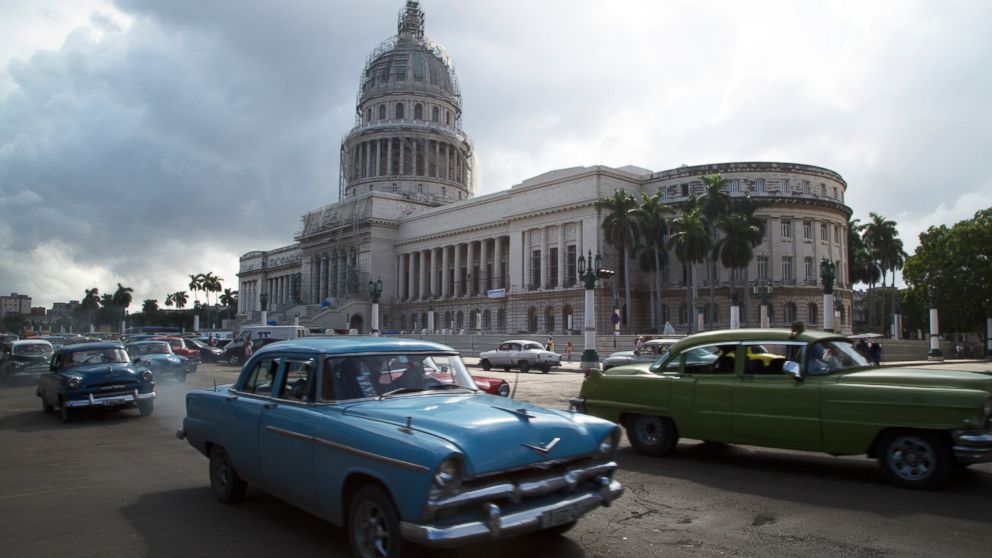Why Cuba’s Removal From U.S. Terrorism List Is Going to Be a Big Deal
The island nation has been on the U.S. state-sponsored terror list since 1982.

— -- The State Department has completed its review of Cuba's status as a state sponsor of international terrorism, President Obama announced today from Jamaica, bringing the U.S. one step closer to a potentially momentous policy shift towards the Communist stronghold.
President Obama said he would not announce any decision today about removing Cuba from the list and that the White House was still reviewing the report.
Cuban negotiators have made clear during talks with Washington aimed at reestablishing diplomatic and economic ties that the relationship could never be considered normal as long as Cuba was designated a sponsor of terrorism by the U.S. State Department.
It's possible President Obama will announce a final decision on his upcoming trip to Panama where he'll attend the Summit of the Americas and meet with all 35 heads of state from across the region.
A Brief History of US-Cuba Relations
Here’s what you need to know about Cuba’s place on the list and what’s likely to happen next:
Why Was Cuba on the list in the first place?
Cuba was added to the terror list in 1982. To be on the list it must be determined the country “repeatedly provided support for acts of international terrorism,” according to the State Department’s website. Cuba stands accused by the U.S. of providing support to terrorist organizations in Latin America, including the Revolutionary Armed Forces of Colombia, or FARC. But the State Department admits those ties have “become more distant,” and last December President Obama announced the State Department would be reviewing Cuba’s designation to that list.
What other countries are on the list?
Cuba is one of only four countries sharing that designation, including Iran, Sudan and Syria.
What has President Obama said about re-evaluating Cuba’s status?
In an interview on National Public Radio this week, President Obama said he’d be “taking a very close look" at the State Department’s coming recommendation. "I think there's a real opportunity here,” Obama said. “I don't expect immediate transformation in the Cuban-American relationship overnight. But I do see the possibility--a great hunger within Cuba--to begin a change, a process that ultimately, I think, can lead to more freedom and more opportunity.”
Could Congress get involved?
The president has the option to give Congress a 45-day notice before lifting the designation, but Congress would have to pass a veto-proof measure if they wanted to overturn the president’s decision. That means Congress would need over a two-thirds majority of both houses. That’s extremely unlikely to happen and aside from the members of the so-called Cuba caucus (anti-Castro, Floridian lawmakers) a decision is not expected to make too many waves. “We saw this as a foregone conclusion the day the president announced the review,” one Congressional staff member told ABC News.
What do the Cubans think?




